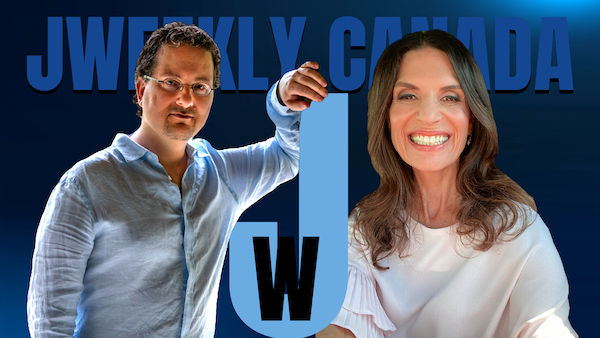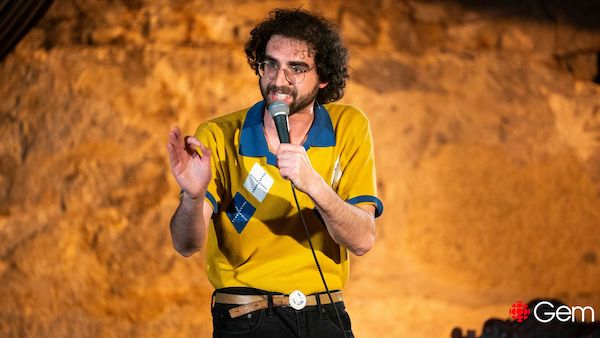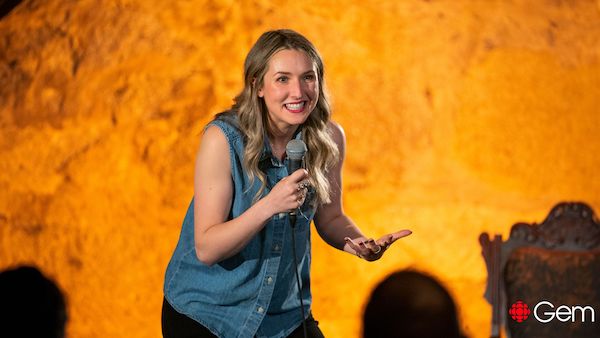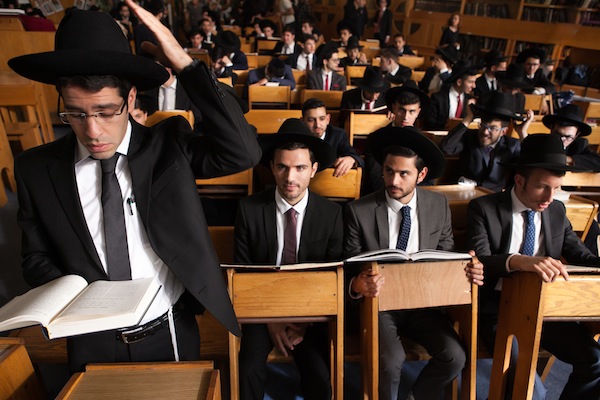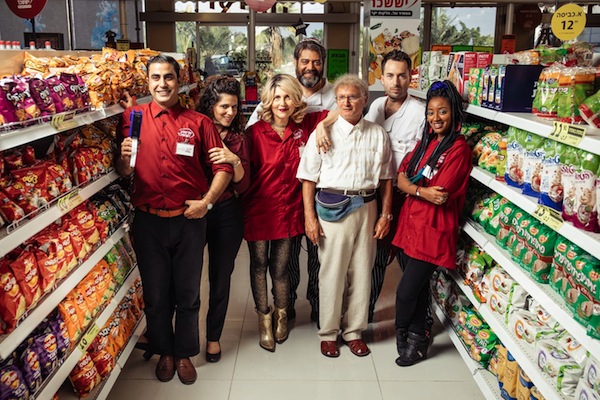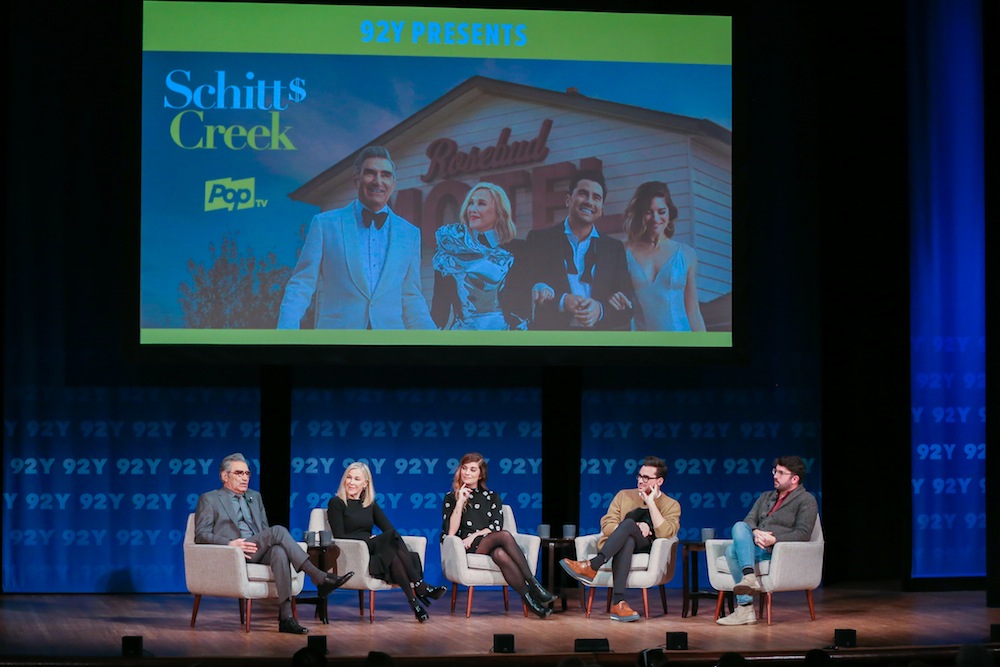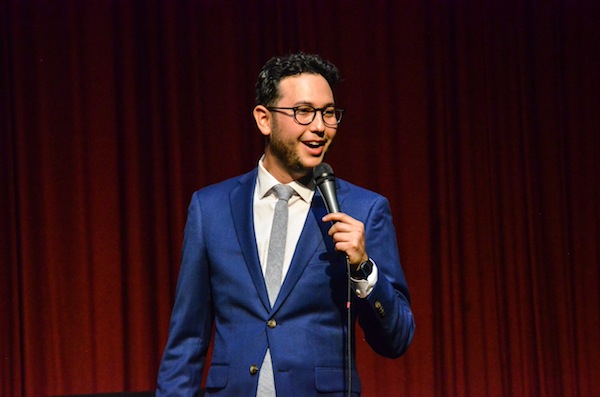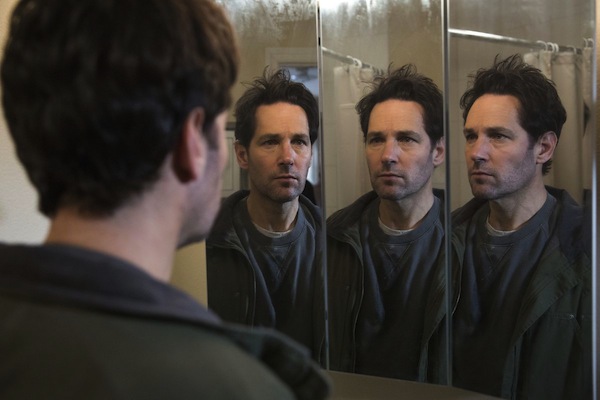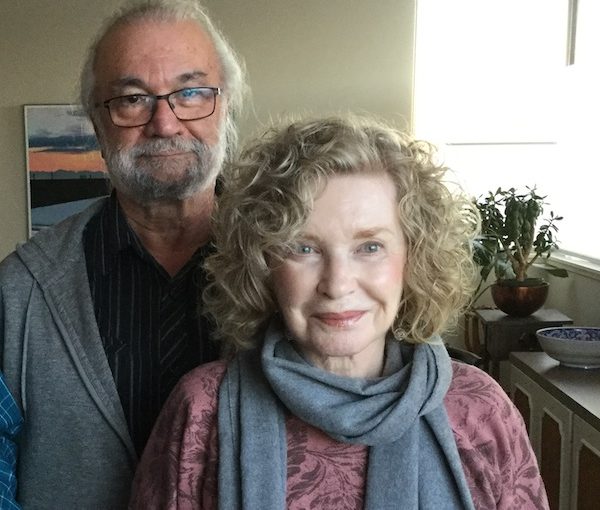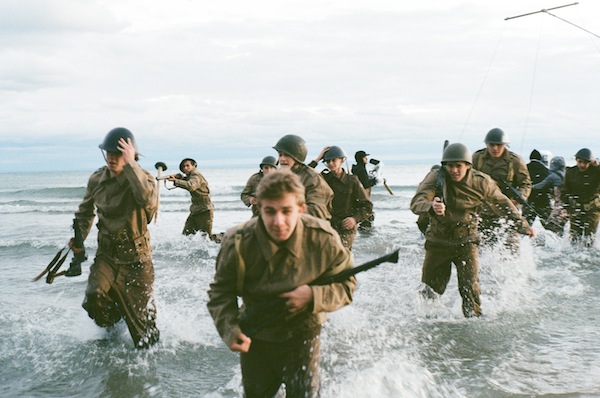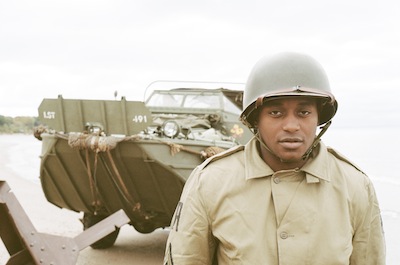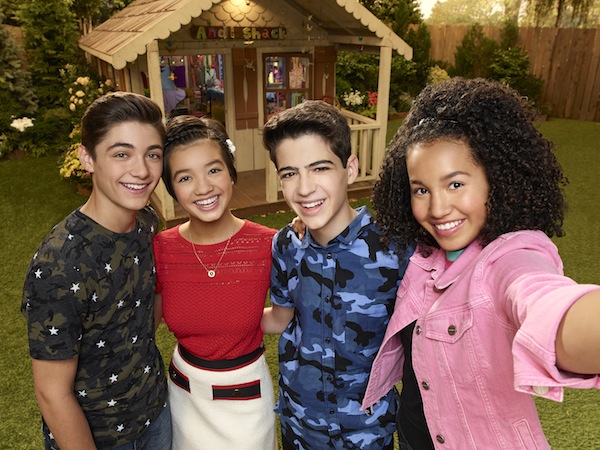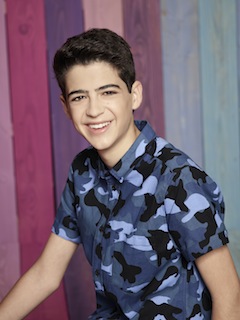Ieden Wall and Susan Minuk’s contrasting styles balance JWeekly Canada perfectly. (photo from JWeekly Canada)
JWeekly Canada made its Season 5 debut in September, becoming the longest-running Jewish TV talk show in Canada.
Friends and colleagues warned Ieden Wall – the show’s creator, co-host, writer, director and executive producer – that he might be making a mistake by signing on with Omni TV, the multicultural TV channel owned and operated by Rogers Sports and Media. Wall, however, insisted that traditional cable TV, based in a North American major market, is a lemon with a surprising amount of juice to be squeezed out of it – if one plays their cards right.
The data seem to support caution. Approximately 42% of adults now opt for streaming services, with 35% accessing streaming content through their TV sets and 7% using personal devices. Roku predicts that this trend will persist and that an estimated 75% of all Canadian households will cut the cord by 2026.
But JWeekly Canada, which Wall co-hosts with Canadian journalist Susan Minuk, has made lemonade.
Rogers Sports and Media runs Hudson & Rex on its CityTV platform in the same Saturday primetime slot as JWeekly Canada. It is hard to image that JWeekly Canada could compete digitally with the heavily marketed hit, which airs on Omni’s sister station. And, by all accounts, its budget of $9,000 per episode should not allow it to compete. Yet it does – JWeekly Canada reaches some 100,000 viewers a week and more than half a million viewers a month. The half-hour program airs three times per week on television, is posted on a handful of social media channels and streams on JWeekly’s website.
JWeekly Canada has found its audience.
Cable TV reaches 97.3% of the over-55 population but only 29% of the 18-34 demographic in Canada each week. Wall highlighted what he considers an overlooked statistic in a 2024 Statista survey: 79.6% of Canadians between the ages of 45-54 watch cable TV within their primetime leisure window.
“There is a surprisingly large subsection of men and women in their mid-to-late 40s who search out desirable content on cable TV during their nightly leisure window,” Wall said. “This group was crucial in us building our core audience.”
While Wall shares the JWeekly Canada screen with Minuk, the two seldom appear together. Their contrasting styles balance the production perfectly. Minuk is the soft-spoken interviewer and Wall is the playful provocateur. Together they offer up a little something for everyone it seems.
JWeekly Canada is a Jewish-themed talk show, but with broader appeal. It has avoided being ethnocentric, offering content that smiles with Jewish pride, while still welcoming a multitude of cultures. To emphasize this point, JWeekly Canada’s current audience is only 31% Jewish.
When asked about the show’s diverse viewers, Wall said, “Listen, our guests are some of the most intriguing and accomplished people in our country. The fact that they are Jewish is ancillary to the merit of their talent and success.
“If you are talking to a genius scientist who just invented a revolutionary heart procedure, which augments human arteries with lizard skin, it doesn’t matter if he/she happens to be Chinese, Indian or Jewish. Right? Great TV is great TV.”
The show’s format is a hybrid of in-studio interviews, conducted by Wall and Minuk, and Wall’s field segments. His daring and quirky remote pieces have allowed JWeekly Canada to reach outside Omni TV’s boomer demographic and attract a younger audience.
His recent incarnation is the creation of a Jewish AI system called Chat JPT. In this segment, Wall tries out a pre-market Jewish AI system designed by Dr. Shecky Kravitz. Wall develops an unlikely friendship with Hershel, one of the platform’s avatars, and quickly finds out that letting his all-knowing avatar tag along for daily activities is both a blessing and curse. Well, probably more of a curse.
In JWeekly Canada’s second season, Wall did 12 segments from a residential elevator at a luxury highrise. He called the segment “The Elevator Show.” For it, he put an elevator on “service,” took it to a floor of his choice and did on-the-spot interviews. Residents from the building gathered outside the open cabin, on bridge chairs, to watch. It was pretty darn cool.
“I have always considered Ieden to be ingenious,” said talk show legend Dini Petty. “I really hope Ieden finds the financial resources and marketing support he deserves because his ideas are truly pioneering.”
Wall has plans to come to Vancouver in the spring for a three-part documentary series called Solid Gold, about the life and times of 19th-century businessman Louis Gold, who settled here from the US with his family and helped build the city. Wall’s vision is to document the rich Jewish history in all major cities across Canada.
And he is hoping to soon reach more BC Jews with JWeekly Canada. With increased viewership from West Coast Jewry online, Rogers Sports and Media is considering running the program on its Omni Pacific Channel next September. In the meantime, the program is streamed and podcast every week on jweekly.ca.
Louis Mann is a retired psychotherapist living in Boston. He grew up in the Bathurst Manor district of Toronto and continues to take an avid interest in Jewish causes in Toronto and throughout Canada.

